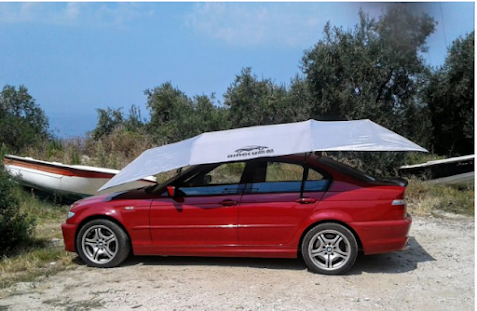Previously published on the Veda blog page
Heat Stroke in Summer Can Be a Killer, but What Is It and How Can We Avoid It?
With summer temperatures in the northern hemisphere topping 100°F (38°C) in many countries, I thought it appropriate to reissue my blog on heat stroke, first published on Baby Knows Best in July 2019.
This post was sparked by an article about a single mother in Canada whose 3-year-old child suffered a heat stroke and died while sleeping in her bedroom. How could this have been avoided? Read on to find out.
Often, heat stroke occurs at home, not when you’re on holiday. And it’s children, particularly babies, who are most at risk.
It is not just extreme temperatures that make this period critical but sustained high temperatures over several days. With little respite during the night, the body doesn’t get the chance to lower its temperature naturally, increasing the likelihood of heat exhaustion and heat stroke.
What is heat stroke?
When the body temperature reaches 104°F (40°C) and cannot cool down, you feel nauseous and tired from heat exhaustion. This is very dangerous as it could lead to a heat stroke.
When heat stroke occurs, the body temperature can rise to 107°F (41.7°C) within 10 to 15 minutes. At this point, the body temperature control mechanism shuts down, causing major issues with the nervous system, resulting in brain damage and, ultimately, death.
But how do you see this in your child, who may be sleeping at the time? Children and babies cannot regulate their temperature naturally, so they are most at risk during extended periods of high temperature.
Symptoms
It is vitally important that you spot the symptoms and act quickly, as heat stroke can cause damage to the brain and other vital organs and can even result in death if not treated immediately. Here are some things to look for:
- Redness in the skin
- Heavy sweating
- Irregular or heavy breathing
- Increased heart rate
- Goosebumps
Treatment
If you suspect your baby is suffering from heat stroke, you should:
- If your baby is unresponsive, call an ambulance or get your baby to a hospital straight away
- Remove any outer clothing and bed linen
- Turn on a fan or air-con unit (should have been on in the first place if you have one!)
- Immerse your baby in a cold-water bath
- Use a wet towel to dampen the skin—pat, don’t rub
- Concentrate on the back, neck, armpits, and groin areas—use ice packs if available
- Check the body temperature to see if it is reducing
How to prevent heat stroke
Knowing how dangerous heat stroke is in babies and toddlers, prevention is better than any cure. Here are some tips for keeping your baby cool this summer:
- Your baby needs plenty of fluids—water flavored with lemon and other citrus fruits is good, but you can also give your baby watermelon, which has excellent nutritional value. Avoid icy drinks, as these may cause stomach cramps.
- Loose, lightweight clothing allows the skin to breathe, preventing overheating.
- Playing in water is a fun way to cool down, but be sure to protect your skin from the sun's powerful UV rays.
- Stay in the shade as much as possible.
As an adult and a parent, you also need to be aware of the potential dangers of sitting out in the sun all day during long periods of sustained high temperatures. Take these extra precautions to avoid heat exhaustion:
- Avoid alcohol during the day. This affects the body’s ability to regulate its temperature.
- Caffeine makes you lose more fluids than you take in, so don’t overdo the coffee. Surprisingly, a single espresso has, on average, half the caffeine of a cup of Nescafe,
- Take extra precautions if you are on medication such as diuretics, sedatives, or heart and blood pressure tablets. Ask your doctor if your meds increase the risk of heat exhaustion.
- Avoid strenuous exercise in the afternoon when the temperature is at its highest
- Monitor the Relative Humidity (RH) and temperature. Your body sweats to cool down, but when RH reaches 60% or more, you sweat less, which causes your body to overheat.
- Remember, when you sweat, you lose salt, so you must also replenish your salt levels. Sports drinks containing electrolytes are good for this.
- Don’t forget the sunscreen! Use an SPF of 30 or more and apply regularly. If your skin burns, your body cannot cool down as fast.
I hope you found this helpful. We at Baby Knows Best would like to wish you all a happy and safe summer.
Mike O’Toole, July 2019




Comments
Post a Comment